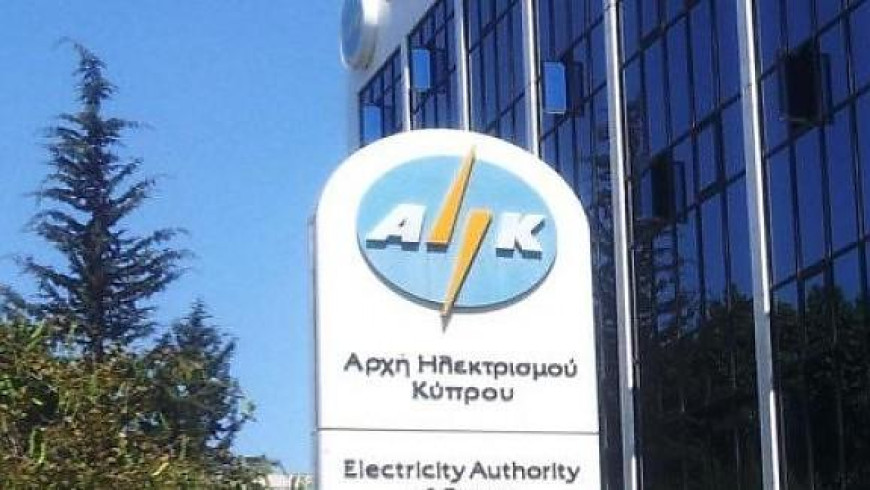Government Budgets Increasingly Political and Disappointing: Not Achieving Socio/Economic Goals

Members of the House of Representatives (MPs) will discuss the Cyprus government budget for 2024 on December 18. As reported by Stockwatch MPs will concentrate on discussion of amendments to the budget proposed by various political parties. While government budgets are the focus of competing political interests this concentration is unfortunate as MPs should be debating the big picture of whether the execution of the proposed budget for 2024 is capable of enabling the government to make significant progress toward achieving its key socio/economic goals.
In his speech to the House of Representatives on December 8, Minister of Finance, Makis Keravnos, stated that the 2024 budget was a key component for achieving the “strategic goals for economic stability, balanced development and social welfare” of the “people-centered” policies of the Christodoulides government. The Minister emphasized that “the budget is characterized by fiscal responsibility aimed at strengthening the economy and enriching the economic development model, and aiming at mitigating economic and social inequalities”. Accordingly, MPs should analyze the targets and the expenditure and revenue components of the 2024 budget to ascertain whether there are realistic prospects for making progress toward achieving the goals specified by Minister Keravnos.
Political Influences
As is the case in most countries the framework and content government budgets in Cyprus are influenced considerably by political factors rendering it difficult to simultaneously achieve all key socio/economic goals.
This is the situation in Cyprus where the strict fiscal rules of the EU have induced the government to prepare budgets with the over-riding goal of producing balance or a surplus in the government accounts so as to move the ratio of its debt to GDP toward 60%. In exercising such fiscal responsibility with the generation of budget surpluses in recent years the role of budgets in contributing to economic stability is being achieved.
But, given the increasing influence of domestic political factors on the preparation, approval and execution of government budgets in Cyprus so-called fiscally responsible budgets have come at a cost in terms of the ongoing failure to achieve balanced and environmentally-friendly development as well as in mitigating widening economic and social inequalities.
More specifically, ever since Cyprus exited the adjustment program with the Troika in March 2016, the composition and implementation of government budgets have been increasingly influenced by domestic political factors including the nexus between the decision-making political and business elites, the closeness to elections, and the practice of rewarding political party loyalists and sycophants with government appointments.
These political forces have caused a very large rise in current government expenditures as an expanding army of well-compensated government workers, mostly casual, advisors and consultants were employed increasingly for political purposes rather than for their capability of providing good public service. In fact, during the five years of the second Anastasiades administration to early 2023 the compensation of government employees increased by over 35% and the item “other current expenditures” rose by around 55% owing importantly to the out-sourcing of government tasks and studies to consultants.
Furthermore, because of political pressures taxes have been kept relatively low by a system that does not tax wealthy property owners and high-income earners adequately as well as by an administration that turns a blind eye to prolific tax evasion.
Impact of Politically-Influenced Budgets
Thus, with the government obsessed with achieving a balanced budget or better, mounting current expenditures on personnel, many of which have limited competence, and tax revenue subdued, the funds and institutional capacity to undertake needed investment projects and disburse adequate expenditure on social protection and the care economy are crowded-out.
Indeed, the stifling of public investment projects reflected by an average implementation rate of under 65% for planned government capital expenditures markedly holds back the balanced development of the economy. In fact, the government’s inability to sustain development and a viable natural environment is demonstrated by the lengthy delays in implementing investments and reforms under the Recovery and Resilience plan agreed with the European Commission in 2021. This plan earmarks 1.2 billion euro of EU funding for Cyprus to be utilized by August 1, 2026. Yet by September 1, 2023 less than 5% of these funds had been taken up for investment projects and structural reforms. And the failure to spend sufficiently on energy saving measures and reduce carbon emissions to target levels has been quite costly in requiring the government to pay very large penalties.
In addition, the failure to tax appropriately the rich, the more generous and higher compensation of public sector employees compared with most employees in the private sector, and deficient levels of social benefits and housing have resulted in economic and social equalities continuing to widen.
Furthermore, compared with other EU countries expenditure by the Cyprus government on social protection is quite low. And Cyprus Ministers of Finance have complained periodically that they do not have sufficient money to finance higher levels of social benefits. Although the government has reserves or deposits at banks that regularly total over 5 billion euro it is the low tax to GDP ratio of Cyprus that sustainably keeps government spending on social protection subdued[1].
Latest Budget Developments
Budget developments under the Christodoulides administration have become even more influenced by political factors with electoral supporters of the new President being rewarded with government appointments during 2023. In addition, the employment of casual workers has accelerated with their number increasing spectacularly by 2,675 or 13.3% over the 9 months to November 2023, while the number of government permanent workers declined by 763 or 3.0%, once again reflecting the government’s strongpreference for political loyalty over competence in its employment policies.
In the government budget proposed for 2024 political factors again are influential in determining the allocation of over 93% of total expenditure to current items, including 3.7 billion euro for personnel expenditures and 1.0 billion euro for healthcare. And with projected tax revenue being kept relatively low and the government targeting a larger surplus of 871 million euro or 2.8% of GDP in 2024 only 865 million euro or 2.8% of GDP is allocated for the lower priority capital expenditure component.
Furthermore, before the budget for 2024 is approved there will be amendments, most notably involving additional current expenditures relating to the appointment of more government personnel, a development that could eventually pre-empt more funds from financing investment projects and outlays for the care economy.
Hence, with the 2024 budget being more of the same, MPs in their assessment of this key instrument of government policy should take account of the performances of recent budgets that fell disappointingly short in achieving officially stated socio/economic goals of generating balanced and sustainable development and mitigating economic and social inequalities, despite exercising so-called fiscal responsibility with rising budget surpluses.
Proposed Changes
Against this background MPs should be considering ways to boost investments on soft and hard infrastructure so that the goal of balanced and sustainable development can be achieved. Given its investment-grade credit rating and weakening domestic demand the government should target a much lower budget surplus for 2024 so as to release resources for investments. Consideration should be given also to arranging additional funding of investments through public private partnerships. And as outlined below tax revenues should be raised so as to provide further funds for investments.
Equally important would be to enhance the government’s institutional capacity to significantly improve investment performance and the related greater absorption of EU funds, particularly for projects involved with the greening and digitization of the economy. In this connection the recruiting and training of staff to improve the competence of the government in identifying, preparing and financing worthwhile investment projects should be undertaken.
MPs should be aware also that the 2024 budget and past budgets have assigned little consideration to the goal of mitigating economic and social inequalities. In fact, in the preparation and execution of government budgets income and wealth inequalities are being amplified through the much better compensation provided to public sector employees as against most private sector employees as well as through the inability to adequately and progressively tax high-income earners and wealthy property owners. Undeniably, the Cyprus tax system has become increasingly regressive with greater reliance on the VAT and excises to generate revenue. Notably, the Minister of Finance has commissioned three-year study by the University of Cyprus on tax reform. However, such a study would be waste of time and money since already there is a compelling need to reintroduce a progressive tax on immovable property, to make the structure of personal income tax rates more progressive, and for the government to make really serious efforts to combat prolific tax evasion.
These tax reform measures would not only substantially boost government revenues and enable the greater financing of investments, but would make more funds available for redistribution to finance social protection and housing and narrow social and economic inequalities in the process, particularly of the yawning gap between the property-owning older generation and the younger generation of persons renting and dwelling with parents.
[1] In 2022 the ratio of taxes plus social contributions to GDP was 36.5% whereas that in the EU averaged 40.5%, while the ratio of total social protection benefits to GDP for Cyprus was 22.5% compared with a much higher average of 28.0 % for EU members.







 3287.99
3287.99 1275.09
1275.09

